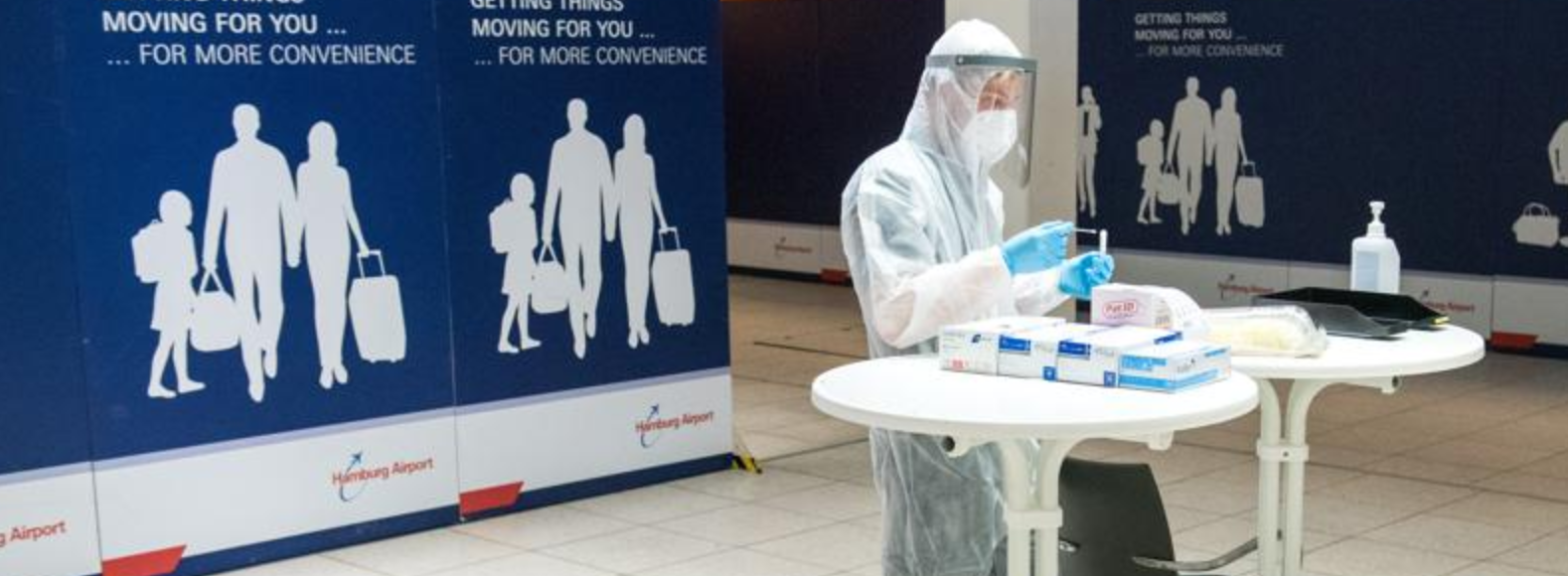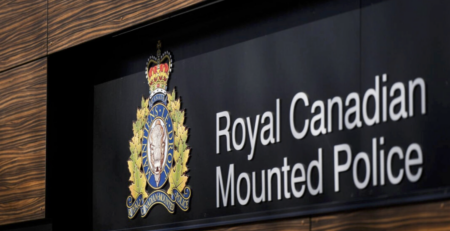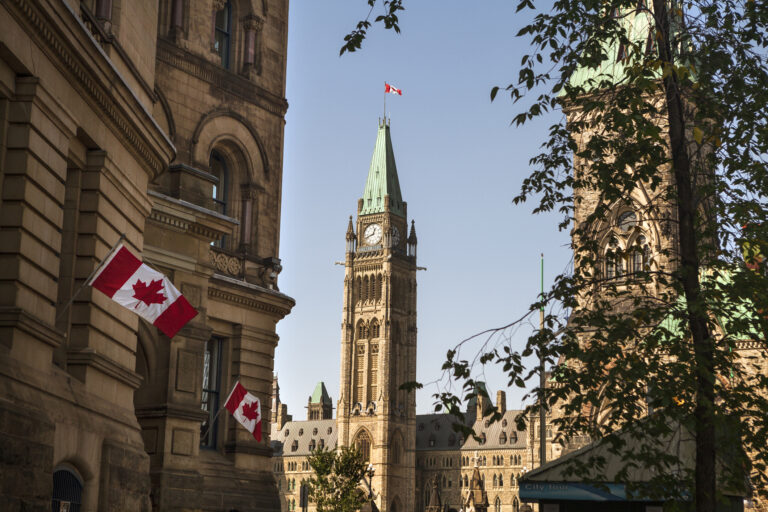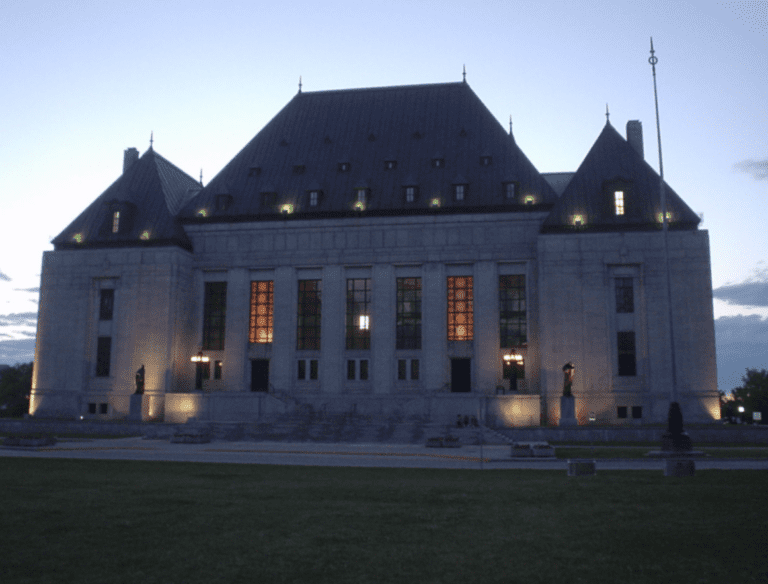Court Day 1, June 1, 2021
The Justice Centre for Constitutional Freedoms was in court on Tuesday, June 1st 2021 on behalf of eleven applicants who are challenging the government’s policy mandating returning Canadians to quarantine at quarantine hotels and quarantine facilities. Federal Court Chief Justice Paul Crampton is presiding over the matter. Arguments are expected to take three days.

The Justice Centre’s Henna Parmar in her opening statement submitted that throughout history we have seen that the most egregious human rights violations occur in the face of emergency, and that it is only in hindsight that we are able to see the extent of the irreversible damage that has been caused by the government’s ability to trample over our civil liberties and our right to due process. She urged the court to set a precedent that demonstrates that protecting the Charter rights of Canadians is of the utmost importance and that it is fundamental to our free and democratic society.
The Court heard that many of the Applicants left Canada under a certain set of rules and came home to entirely different rules.
Ms. Parmar also emphasized that we are currently on the fifth version of Orders In Council with regard to traveling outside of Canada since January 2021, and because these orders keep expiring every thirty days, it makes them incredibly difficult to challenge. By the time a challenge is brought to court, the order has already expired.
The specific sections of the Orders being challenged are the sections that make it mandatory to quarantine at a federally approved quarantine hotel and the sections that require detaining people in designated quarantine facilities when they are asymptomatic and have a suitable quarantine plan.

Two of the Justice Centre’s Applicants were taken to quarantine facilities under the threat of detention and arrest. The authorities refused to tell them the location of the facility and did not inform them of their right to legal counsel.
The Justice Centre argued that even those who are charged with committing serious criminal offences have more rights than these law-abiding citizens and that these Orders violate section 12 of the Charter as the applicants is subject to treatment or punishment at the hands of the state and that such treatment or punishment is cruel and unusual.
The Justice Centre’s Sayeh Hassan made the submission that the Orders violate section 6 of the Charter, which affords Canadians the right to enter, stay and leave Canada based on one’s own choice. She submitted that the current oppressive measures create severe and unjustified restrictions on this Charter right and that Canadians’ freedom of choice to leave and come home to Canada have been taken away from the Applicants and other Canadians.
They are faced with the choice to come back and face mandatory detention which they must pay for themselves in the case of quarantine hotels or stay abroad and miss out on opportunities such as to see their doctor, follow up cancer treatment and to reunite with their family. “When you’re faced with detention versus not coming home, that’s not a real choice in my respectful submission,” said Ms. Hassan. She told the Court: We cannot brush away the detention of thousands of Canadians by referring to this as a regulatory process.

Ms. Hassan argued that detaining law-abiding citizens into quarantine facilities engages section 7 of the Charter and that this is a serious issue to be tried. Any measures implemented by the state that interfere with life, liberty and security of the person must conform to the principles of fundamental justice. The act of forcing people into facilities, under the threat of arrest is prohibiting the right to move freely.
Another matter of concern raised by the Justice Centre was the security at these facilities. There have been numerous reports of multiple Covid-19 outbreaks at these facilities. The Federal Government also acknowledged one sexual assault occurred at a quarantine hotel. The government is responsible for the safety and security of the people who are being detained in these facilities.
Ms. Hassan argued that there are other minimally impairing measures available to the government besides forced quarantine in a hotel at the traveler’s expense, such as testing.
Ms. Hassan told the Court that the government’s Order is overbroad since it applies to travellers who don’t need to take public transportation and or domestic flights. Ms. Hassan mentioned that prior to these measures, there was a government program where private transport was available to people who were symptomatic with an appropriate quarantine plan. That program could be expanded to include all air travelers. Detaining people with a suitable quarantine plan and private transport available is arbitrary. If the objective is to limit the spread of variants of concern, the argument can be made that the variants are already in Canada. There is no evidence before the court according to Ms. Hassan that the variants of concern arrived in Canada by way of air traveling.
The lawyer for the Justice Centre also pointed out to the Court that Canadians in these facilities have no control over their environment. At home, an individual has full control over their safety and surroundings and environment. At these federal hotel facilities, individuals are completely under the control of the government or the people working in these facilities.

Court heard that individuals detained in hotels were never advised that they had a right to speak to a lawyer. Ms. Hassan once again submitted that people charged with serious criminal offences appeared to have more rights than law-abiding citizens in this case.
Ms. Hassan referred to a report that was published in May 2021 by a government advisory committee making recommendations that the hotel quarantine measures should be discontinued.
The Justice Centre is counsel for two of the four separate but similar Charter challenges before the court. Sarah Miller and Robert Hawkes who are representing applicants’ Rebel News and independent journalist Keaan Bexte argued that the Order is arbitrary because it only applies to air travelers.. Mr. Hawkes also argued that the amount that people must pay to stay in these quarantine hotels is punitive, whether by negligence or design.
Court Day 2, June 2, 2021
Today, proceedings in the Federal Court started with Mr. Jeffrey Rath, who independently represents one of the Applicants, taking exception to a supplementary compendium filed by the Government after the first day’s proceedings had been concluded. Mr. Rath argued it inappropriate and requested that all Applicants be permitted to make submissions on the compendium during reply submissions.
Chief Justice Crampton ruled that he would not exclude the compendium as he had not had a chance to review it, and confirmed that counsel for the Applicants would be given time to address the arguments and allegations contained in the compendium.

Mr. Rath then commenced with his submissions by stating that the applicant adopts all the arguments already made by other Applicants. He went on to argue that considering section 58 of the Quarantine Act, it is important to understand that there are reasonable alternatives to the impugned orders and that Canada has mischaracterized their obligation under the Oakes-test and section 58 of the Quarantine Act to minimize the impairing effect of the measures. The Oakes-test requires a limit on a Charter right must be “reasonable” and “demonstrably justifiably justified”.
Mr. Rath submitted that rather than providing evidence on a reasonable basis that alternatives measures were considered, and that the alternatives measures themselves would be ineffective on a scientific basis, the government keeps on saying “these variants of concern are very concerning, and therefore we are justified in what we’re doing”.
Mr. Rath argued that the Oakes-test and the obligation under section 58(d) of the Quarantine Act impose objective criteria on the government of Canada to be able to demonstrate on an objective basis to an outside observer that they have properly considered reasonable alternatives to the infringements that are being imposed.
Mr. Rath reminded the court of the role of the Federal Court “to assure the citizens of Canada that their rights were considered and respected in the context of these measures, that the court can objectively observe the measures, look at the science behind the measures versus the alternatives to the measures and then come to an objective determination on the basis of evidence that the measures were either necessary or not necessary.”

Mr. Rath’s client is challenging both the requirement to force Canadian citizens to pay thousands of dollars to be detained at an “airport detention facility” as well as the fourteen-day quarantine period as it applies to healthy, asymptomatic, Canadian citizens who have two negative Covid tests. Mr. Rath referred to the advisory expert report that was filed yesterday by Ms. Hassan of the Justice Centre, which showed that there are alternatives to the fourteen-day quarantine, including a seven-day quarantine on the basis of two negative tests. As to the reasonableness of the Orders, Mr. Rath submitted that there is clearly an unjustifiable infringement of rights in light of the possible alternative measures and the ineffectiveness of the PCR-test to send people to quarantine facilities at their own expense.
Mr. Rath asked the question of why people who are symptomatic and sick can be sent home to isolate but people who have no symptoms have to go to a quarantine hotel for three days at their own expense?
Chief Justice Crampton wanted to know whether there is any evidence to the issue that it takes time to present symptoms from the time of being infected. Mr. Rath said that this issue is addressed in the expert advisory report where reference is made to 7-day quarantine being just as effective as a 14 day quarantine with additional testing
Mr. Rath made submissions that the current test used to test for Covid is not an accurate test because it cannot differentiate between someone who has Covid and someone who had Covid.

After Mr. Rath’s submissions the Government began submissions by challenging Ms. Parmar’s submission that the forced hotel quarantines in GAA’s (Government Approved Accommodation) are run by the government, stating that these hotels were merely authorized, private hotels to temporarily accommodate air travelers.
Court Day 3, June 3, 2021
The challenge in the Federal Court resumed this morning with Counsel for the Government resuming their submissions on increased travel and the importation of Covid-19 and concerns with respect to the health system.
According to the Government, using preliminary findings on the international border pilot program, there is an approximately 1% positivity rate amongst air travelers. Chief Justice Crampton noted that Mr. Rath, made submissions about sending people who tested positive or that were symptomatic home while keeping asymptomatic people with negative tests at hotels.

Chief Justice Crampton stated that he is wrestling with what the incremental benefit is for the added measures, and specifically the GAA’s (Government Approved Accommodation) to which Respondent’s counsel submitted, in essence, that if a person is isolated at the hotel for three days, and receive a positive test result, they will possibly changes their behavior in moving forward.
The Respondent further submitted “going home with the knowledge of a positive test result may change your behavior,” and that by mandating a three-day hotel quarantine the government can “catch” Covid positive people which will reduce spread.
There was discussion between the Respondent and Chief Justice Crampton about whether the government had taken into consideration other alternatives measures to mandatory hotel quarantines, and whether after that consideration the government found that the GAA measure is the most minimal impairing measure, as required by the Charter.
Respondents submitted that other alternative measures were considered but were found to be unsuitable.

On a question from the court on how the GAA is meeting the objectives of the OIC which is to reduce the importation and spread of Covid-19, Respondent’s reply was that it allows government to do a more in-depth assessment into the suitability of the quarantine plan of the traveler, there will not be at-home transmission, it has the benefit of the traveler having the knowledge of a positive test thereby potentially changing a person’s behavior and stops people from traveling on public conveyance.
The Respondents then moved on to their submission on the Charter issues submitting that nothing in the OIC’s prevent the applicants from leaving, staying in or entering
The Respondent submitted that the risk of transmission of Covid is higher in travel than in the community.
In the face of the seriousness of the pandemic, the Respondent argued that the limitation on the right to liberty of the applicants is in line with the principle of fundamental justice.
Chief Justice Crampton asked the Respondent about people being taken to quarantine facilities without disclosure of the location. Respondent submitted that the locations are not a secret, but they do however require people who are being directed there to not disclose it to the public for safety reasons.

Chief Justice Crampton was not satisfied with this answer and wanted to know that if someone who is taken to one of these facilities’ spouses asks for the location, as in Ms. Mathis’ case, one of the Justice Centre’s clients, why can it not be disclosed to them? The Respondent submitted that this situation has now been remedied by the fact that people now book their hotel room in advance and now know the location, but that the Respondent accepts that Ms. Mathis had experienced what she had experienced at the quarantine facility.
The matter has been concluded pending a decision from Chief Justice Crampton. It is unknown when the Court will issue this decision.








